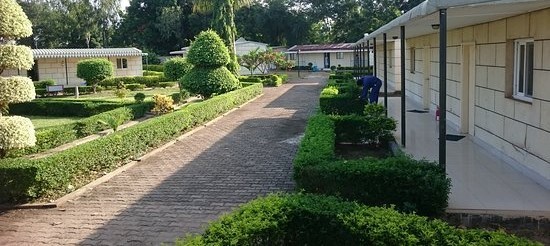Delegates from the various parties to the peace agreement have refused to vacate hotel rooms in Juba after they were thrown out for non-payment of accumulated bills, a hotel manager said.
On 4 February, the hotels association kicked out hundreds of South Sudanese politicians and senior army officers from their hotels over some 10 million dollars in unpaid bills. The over 300 politicians from different opposition groups, the ruling party, and the military, have been staying in over a dozen hotels in Juba for over two years.
The funding for the implementation of the peace deal has been channelled through the National Transitional Committee (NTC), a group comprising government and opposition members and charged with overseeing the finances of the power-sharing agreement.
Mel Garang, the general manager of South Sudan Hotel and a representative of the hotels association, told Radio Tamazuj in an interview on Wednesday that the delegates have refused to vacate and that the hotel owners are powerless.
“We decided that the delegates leave our hotels. And these are not ordinary people, they are important people who include army generals, and they refused to vacate our hotel rooms. We do not have power and we cannot do much because even if we go to the police, they will do nothing to help us,” Garang lamented.
“We are now approaching over two years without being paid our dues by the government. Every time we meet with him (Tut Gatluak), he gives us a time frame within which they promise to pay us. They say they will pay in a week, two weeks, a month, two months, and now we are going to two years of these promises without being paid,” he added.
According to Garang, the last time the hoteliers met Tut Gatluak, the chairperson of the National Transitional Committee (NTC), who superintends over the accommodation of the peace delegates, the latter promised to pay them but has since been avoiding meeting them.
“When we ask the people in finance, they tell us that they do not have any instructions from the boss. When we met the peace minister who is also the secretary-general of the peace committee, he said there was still no money but that Tut (Gatluak) was in charge of all those issues and that he is the one who knows when you will be paid,” Garang explained.
He said the hotels are in a difficult place as suppliers and employees have opened cases against them for non-payment.
“Hotels require regular maintenance and all this has stopped due to lack of money. Some of these delegates have never stayed in hotels before and spoil things. Things like bathrooms and toilets get spoilt and require timely repair. So we are in a dire situation,” Garang bemoaned. “We request the President of the Republic to intervene in this issue because the delegates are important people who are working to bring peace. If we close our hotels, where will they go? There are also our employees to think about. If we close, where will they go? Hotels employ a lot of people.”
Asked if they have thought of suing the government and going to court to seek redress, Garang replied, “The issue of the court is a last resort if we see that we have failed using all available options.”
Stephen Par Kuol, the Minister of Peace Building, told Radio Tamazuj that they as the government have appealed to the hotel owners to be patient and reassured them that they will be paid.
“We told them to be patient until we get money. I will not tell them exactly when but they will be paid. We have problems in the country and the price of crude oil on the international market has also dropped,” Minister Par said. “All these issues plus institutional weaknesses have led to a lack of money. We are a new nation and we have been at war yet every nation needs stability to develop its economy.”
“As the minister for peace, I want to tell the people that if we embrace peace, there will be an improvement. But this needs money. The implementation of the peace agreement requires money, and a lot of money, not little money,” he added.
Asked if international partners and donors have helped or are planning to contribute funds for the peace implementation, Par said, “They have refused. They told us honestly and directly from the beginning that they do not trust us and were waiting to see.”
Key parties to the peace agreement were expected to finalize key tasks such as the establishment of state governments, unification of forces and reconstitution of public institutions last year.
But the process has been delayed by disputes and lack of resources to support the training and graduation of the unified forces.
South Sudan continues to struggle with hyperinflation amid a shortage of foreign reserves.




